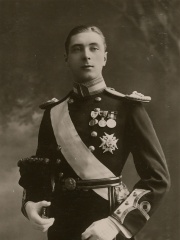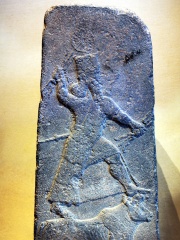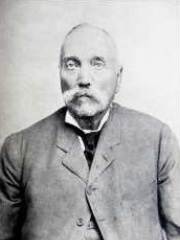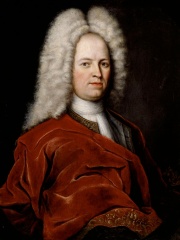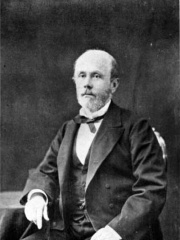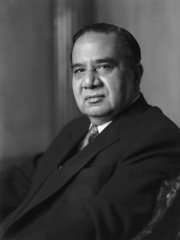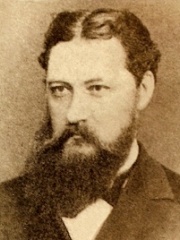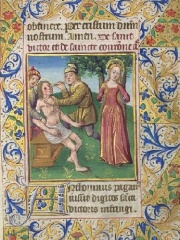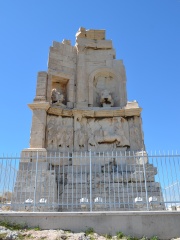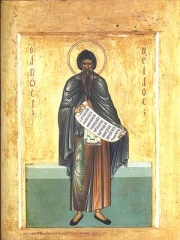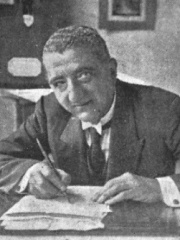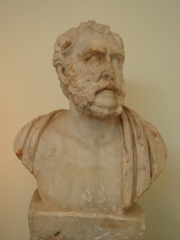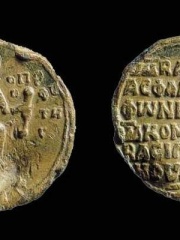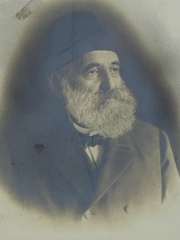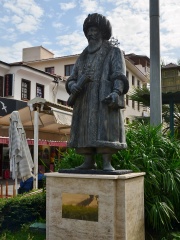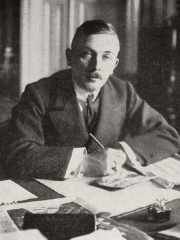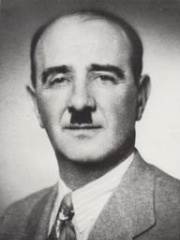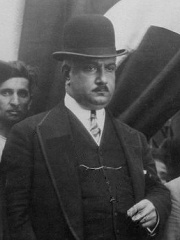Политик
Pixodarus
RU.WIKIPEDIA PAGE VIEWS (PV)
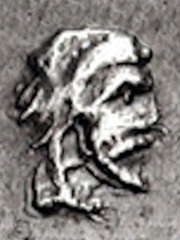
 Pixodarus
Pixodarus
Его биография доступна на 18 различных языках в Википедии. Pixodarus занимает 12106-е место среди самых популярных политик (рост с 14487-е места в 2024 году), занимает 952-е место среди самых популярных биографий из Турции (рост с 1134-е места в 2019 году) и занимает 435-е место среди политик Турция.
Memorability Metrics
Page views of Pixodarus by language
Among Политик
Among политик, Pixodarus ranks 12,106 out of 19,576. Before him are Alexander Mountbatten, 1st Marquess of Carisbrooke, William VI, Duke of Aquitaine, Publius Valerius Comazon, Ur-Ninurta, Marthinus Wessel Pretorius, and Emanuele Filiberto of Savoy, Prince of Venice. After him are Georg Heinrich von Görtz, Aníbal Pinto, Sergei Stanishev, Huseyn Shaheed Suhrawardy, Bernardino Caballero, and Doryssus.
Most Popular Политик in Wikipedia
Go to all RankingsAlexander Mountbatten, 1st Marquess of Carisbrooke
1886 - 1960
HPI: 59.21
Rank: 12,106
William VI, Duke of Aquitaine
1004 - 1038
HPI: 59.21
Rank: 12,107
Publius Valerius Comazon
50 - 300
HPI: 59.21
Rank: 12,108
Ur-Ninurta
2000 BC - 1900 BC
HPI: 59.21
Rank: 12,109
Marthinus Wessel Pretorius
1819 - 1901
HPI: 59.21
Rank: 12,110
Emanuele Filiberto of Savoy, Prince of Venice
1972 - Present
HPI: 59.21
Rank: 12,111
Pixodarus
HPI: 59.21
Rank: 12,112
Georg Heinrich von Görtz
1668 - 1719
HPI: 59.20
Rank: 12,113
Aníbal Pinto
1825 - 1884
HPI: 59.20
Rank: 12,114
Sergei Stanishev
1966 - Present
HPI: 59.20
Rank: 12,115
Huseyn Shaheed Suhrawardy
1892 - 1963
HPI: 59.20
Rank: 12,116
Bernardino Caballero
1839 - 1912
HPI: 59.20
Rank: 12,117
Doryssus
HPI: 59.20
Rank: 12,118
In Турция
Among people born in Турция, Pixodarus ranks 952 out of NaN. Before him are Arctinus of Miletus (-800), Sosipatra (-400), Victor and Corona (null), Nikephoros Blemmydes (1197), Serhat (1964), and Philopappos (100). After him are Nilus of Sinai (400), Yervant Odian (1869), Polemon of Laodicea (200), Zeno of Tarsus (-250), Hegesias of Magnesia (-200), and Basilina (300).
Others born in Турция
Go to all RankingsArctinus of Miletus
WRITER
800 BC - Present
HPI: 59.26
Rank: 946
Sosipatra
PHILOSOPHER
400 BC - 400 BC
HPI: 59.26
Rank: 947
Victor and Corona
RELIGIOUS FIGURE
HPI: 59.26
Rank: 948
Nikephoros Blemmydes
PHILOSOPHER
1197 - 1269
HPI: 59.24
Rank: 949
Serhat
SINGER
1964 - Present
HPI: 59.23
Rank: 950
Philopappos
POLITICIAN
100 - 126
HPI: 59.22
Rank: 951
Pixodarus
POLITICIAN
HPI: 59.21
Rank: 952
Nilus of Sinai
RELIGIOUS FIGURE
400 - 430
HPI: 59.20
Rank: 953
Yervant Odian
WRITER
1869 - 1926
HPI: 59.19
Rank: 954
Polemon of Laodicea
POLITICIAN
200 - 200
HPI: 59.13
Rank: 955
Zeno of Tarsus
PHILOSOPHER
250 BC - 200 BC
HPI: 59.11
Rank: 956
Hegesias of Magnesia
PHILOSOPHER
200 BC - 170 BC
HPI: 59.07
Rank: 957
Basilina
NOBLEMAN
300 - 332
HPI: 59.07
Rank: 958
Among Политик In Турция
Among политик born in Турция, Pixodarus ranks 435. Before him are David Komnenos (1184), Mehmed Said Pasha (1830), Mansur Yavaş (1955), Köprülüzade Numan Pasha (1670), Öküz Mehmed Pasha (1557), and Philopappos (100). After him are Polemon of Laodicea (200), Nihat Erim (1912), Hesychius of Miletus (505), Richard von Kühlmann (1873), Mehmet Fuat Köprülü (1890), and Recep Peker (1889).
David Komnenos
1184 - 1212
HPI: 59.58
Rank: 429
Mehmed Said Pasha
1830 - 1914
HPI: 59.47
Rank: 430
Mansur Yavaş
1955 - Present
HPI: 59.39
Rank: 431
Köprülüzade Numan Pasha
1670 - 1719
HPI: 59.29
Rank: 432
Öküz Mehmed Pasha
1557 - 1619
HPI: 59.28
Rank: 433
Philopappos
100 - 126
HPI: 59.22
Rank: 434
Pixodarus
HPI: 59.21
Rank: 435
Polemon of Laodicea
200 - 200
HPI: 59.13
Rank: 436
Nihat Erim
1912 - 1980
HPI: 59.01
Rank: 437
Hesychius of Miletus
505 - 600
HPI: 58.96
Rank: 438
Richard von Kühlmann
1873 - 1948
HPI: 58.95
Rank: 439
Mehmet Fuat Köprülü
1890 - 1966
HPI: 58.93
Rank: 440
Recep Peker
1889 - 1950
HPI: 58.91
Rank: 441
